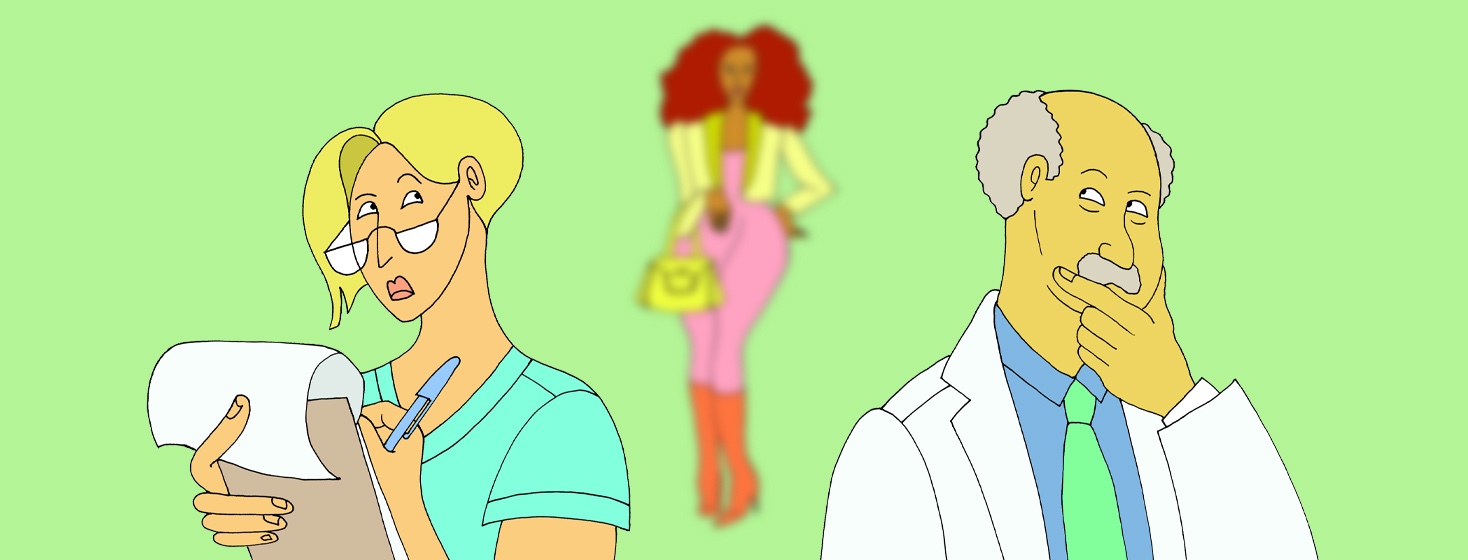Do You Really See Me?
Two mildly safe assumptions people can make about me upon sight. I present as a woman and I am Black.
Tricky things about first impressions are that there are so many nuances and multifaceted layers blurred and vivid at the same time.
This is why it’s crucial to not make judgments based on assumptions and to always look deeper. I think the medical field has a lot to deconstruct in its practices around the prevention of medical bias.
My personal experience in medical bias
Oddly enough, it had nothing directly to do with my gender or race and struck me in a more poignant way than I could ever expect, as it has left a strong residue of frustration in my life.
Where I live, a person living with HIV has limited access to specialized care for a provider through the local health department.
There, the turnover rate for providers is high, appointments are tightly scheduled and supportive staffing is sometimes inconsistent.
Because of this, I struggled to maintain retention in care at the beginning of managing HIV. I’d miss appointments for months at a time because I never got the same treatment team or consistent attention I needed to help me feel safe.
Everyone deserves equitable treatment
One time I did. I treasured it the best I could until that provider took another job in another city.
I was devastated and grieved that they had to leave for at least six months.
When I finally regrouped and got back in care, the nurse practitioner that I sat with had heard of me as an advocate and felt familiar enough with me based on what she heard to breeze through my appointment.
I am sure to her, I was a breath of fresh air compared to what may have been normally challenging clientele in her day as a newly staffed provider.
She asked me when was the last time I had taken my medication while looking at my labs. I honestly couldn’t remember because I had been traveling a lot and dealing with depression. I was taking my treatment the best I could remember but just couldn’t be specific.
Her response? “You’re an advocate, how can you tell the community one thing and not do it for yourself?”
Had her tone been just a touch more gentle and had she not had a smirk on her face or not said it in a patronizing way, I would have been inclined to open up to her.
Instead, I shut down, got an attitude, and made a mental note to never see them again. That moment to me felt just as horrible as the day I was diagnosed.
Featured Forum
View all responsesCompassion counts
Why am I not getting the same conversation as any other patient? Why are assumptions being made that as an advocate I am not facing some of the same challenges as others?
It made me concerned to know how she was even engaging with patients she didn’t know!
She tried to correct herself when she noticed my shift in mood and began to tell me about her background of working in prisons and being a part of the HIV fight for over 20 years.
At that point, it was too late. She had chiseled another brick away from the foundation of finding trustworthy medical providers.
I struggle with that to this day. It is frustrating that I have been living with HIV for going on 19 years and this is still a struggle.
I feel invisible. I feel unheard. I feel trapped.
Start a Forum
Lessons learned
For others who have had similar experiences to this or where a provider just wasn't offering what is needed, I offer things I have learned that, while aren’t a guarantee, have helped me in advocating for myself.
- Speak up. I took it upon myself after that appointment to contact the director of the county health department. My goal was not to get anyone in trouble but to simply inform as well as demonstrate the level of respect I expected, regardless of my advocacy status. Speaking up can be done by documenting the appointment and taking it to a case manager. It can be taking that very moment of feeling unheard to say, “I don’t accept that or I do not receive that.” Hard stop. Then allow the other party to acknowledge and address a way to correct that moment.
- Follow up. When I made my next appointment, I set boundaries and requested to not be seen by the same practitioner. I was accommodated but also left feeling like I was being difficult. I had to measure out what the weighted benefit would be. I had to choose myself first and not worry about who liked me because of it. The body I operate in is mine, the decisions I make about my body are mine and that includes who I partner with in managing my health.
- Never give up. I grow exceedingly exhausted from educating medical teams about my unique journey living with HIV but I also embrace the educational moments as nuggets of opportunity to help the next patient that may not have the words, resources, or energy to advocate for themselves. I hope that taking the time and emotional labor to do the education keeps others from having to experience the same negative feelings I have when managing living life with HIV.

Join the conversation